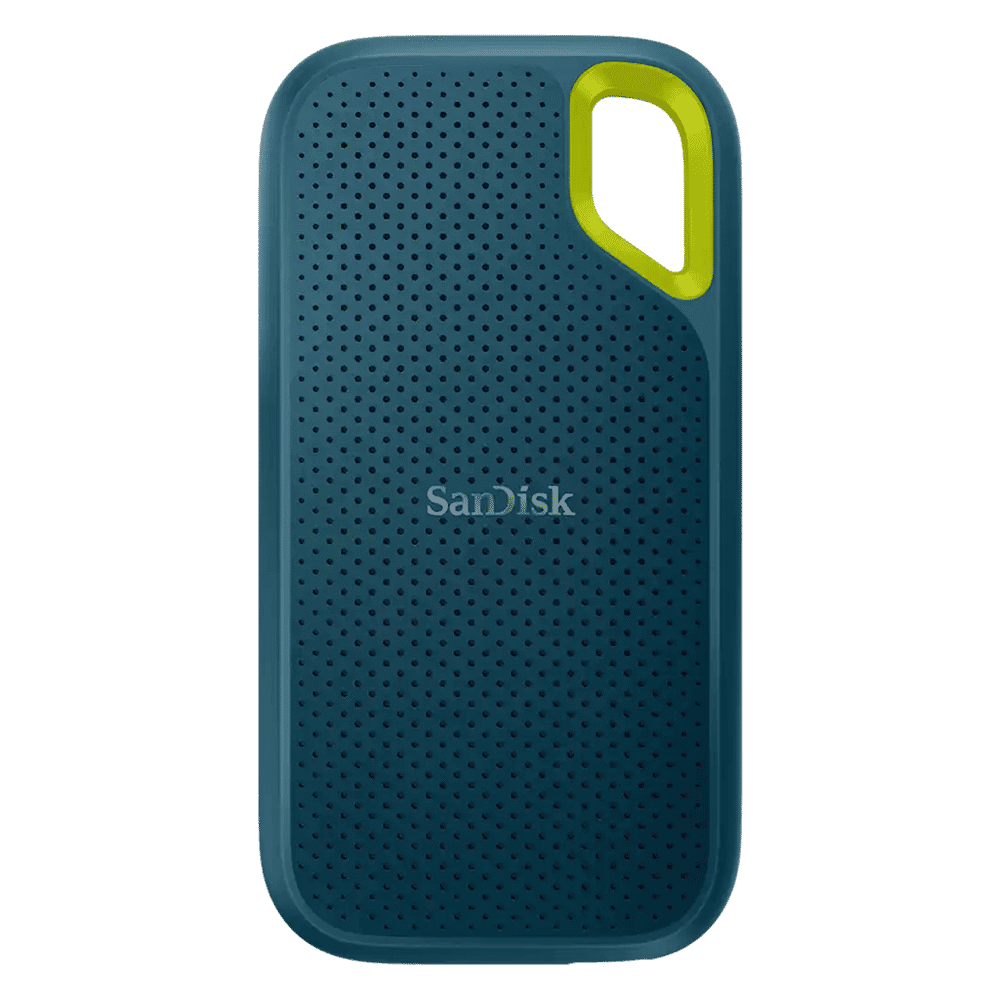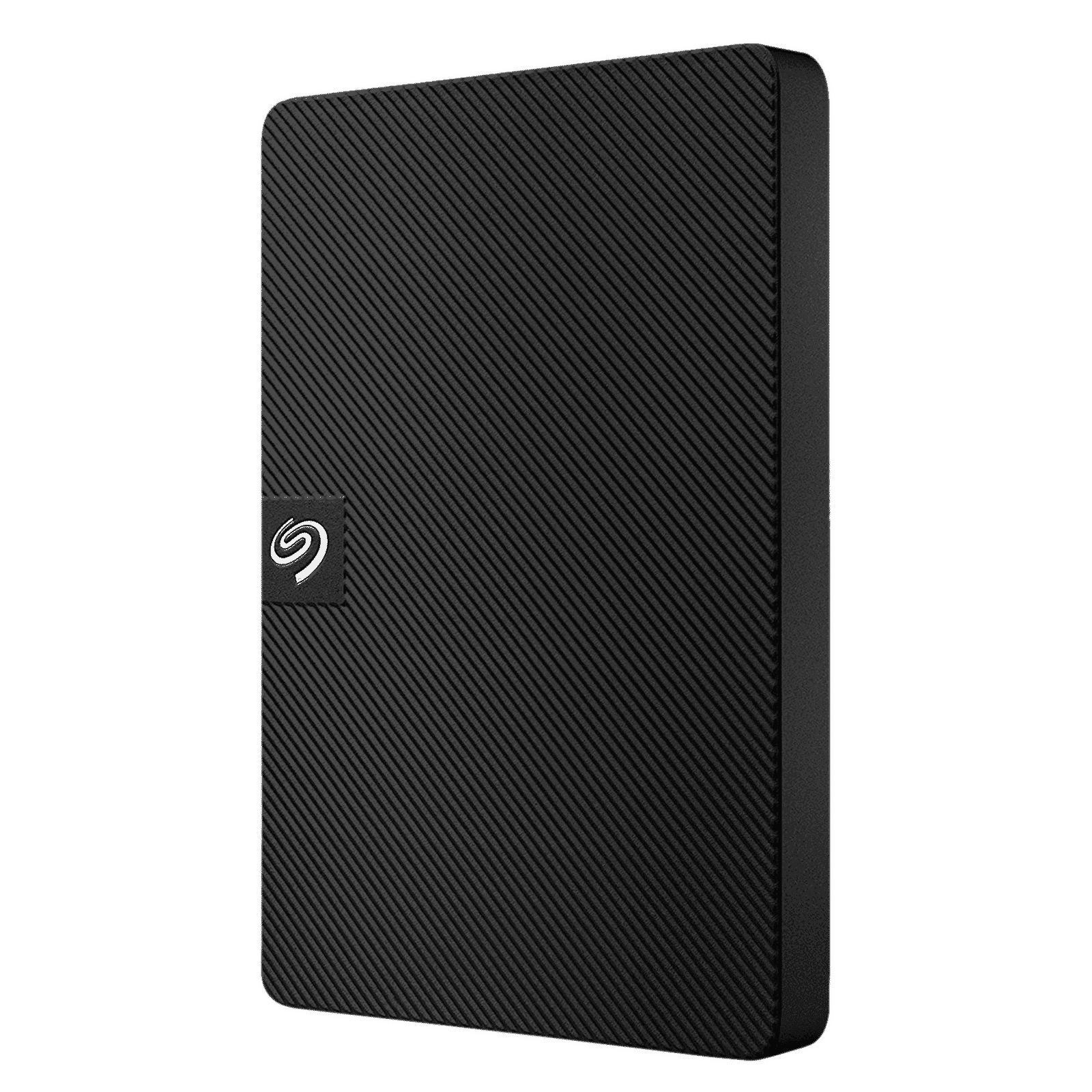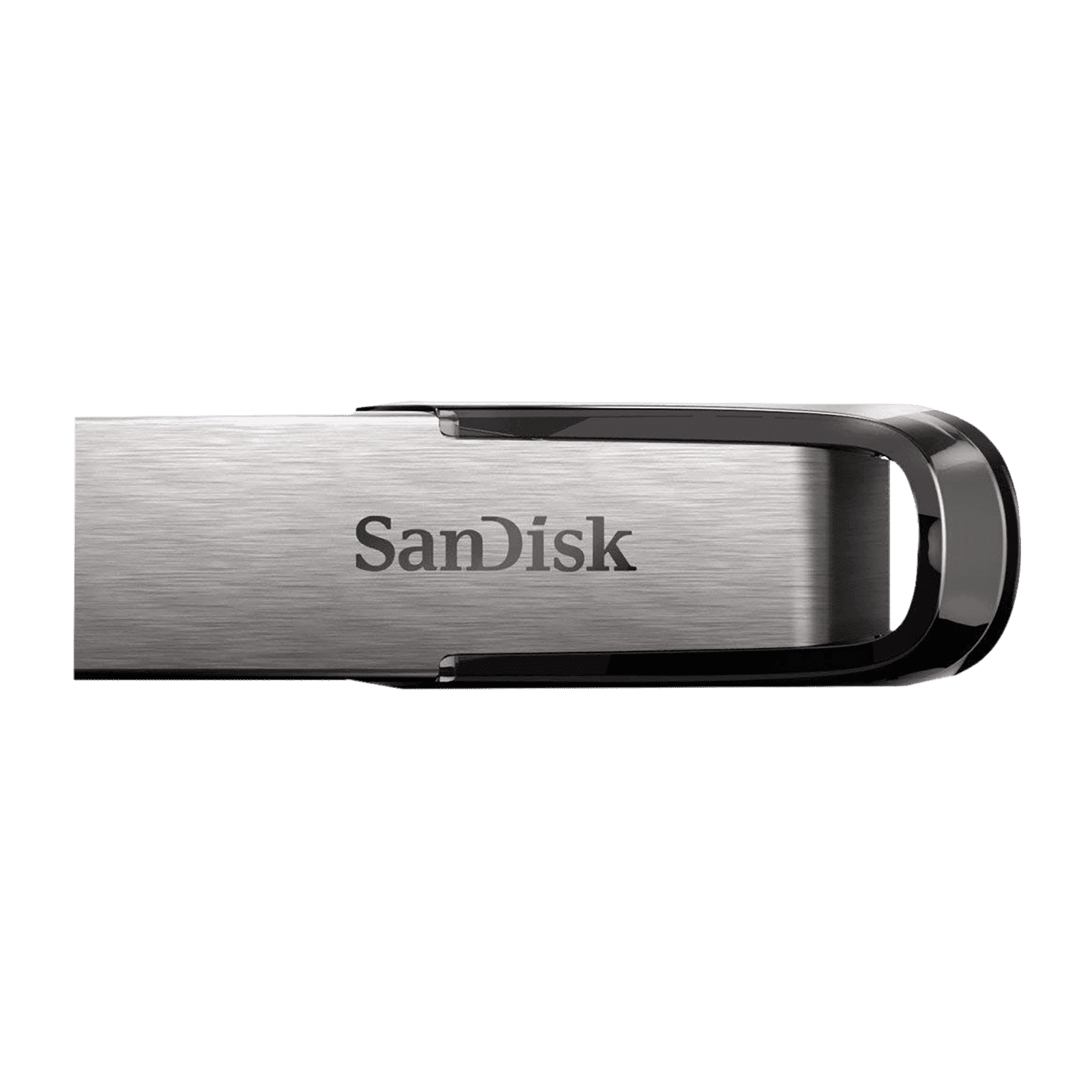
Consumer Electronics
•04 min read

Buy SanDisk Extreme 1 TB USB Type-C (3.2) Portable Solid State Drive (Drop Protection, Monterey) online at best prices from Croma. Check product details, reviews & more. Shop now!
When it comes to choosing storage for your devices, the debate of ssd disk vs hdd often takes centre stage. In our fast-evolving digital landscape, making the right storage choice can boost your productivity and enhance your overall computing experience. By reading this post, you'll gain a clear insight into the distinguishing features of solid state drives (SSDs) and hard disk drives (HDDs), including their performance nuances, lifespan, cost differences, and real-world applications.
Understanding the Basics: SSDs, or Solid State Drives, and HDDs, or Hard Disk Drives, both serve the primary function of storing data. While SSDs use flash memory technology to store data, HDDs rely on spinning disks and a read/write head. This fundamental difference creates varied experiences and expectations for users.
How They Work: SSDs use a series of connected flash memory chips, which makes data access swift and efficient. In contrast, HDDs use mechanical parts that spin at high speeds, allowing the drive to read and write data from physical disks. The lack of moving parts in SSDs typically translates to a quieter and more robust operation.
Key Differences at a Glance: SSDs are renowned for their speed and durability, while HDDs have long been the go-to for expansive storage at a more affordable price point. These differences make each ideal for particular scenarios.
Speed Differences: In everyday tasks such as booting up systems and transferring files, SSDs offer remarkable speed benefits. The improved read/write speeds of SSDs mean that your device responds in the blink of an eye compared to traditional HDDs. This can be particularly valuable when handling large files or multitasking.
Gaming and Creative Workloads: For gamers and creative professionals, faster loading times translate into smoother workflows and an enhanced overall experience. When measuring ssd vs hdd speed differences, the ability of SSDs to drastically cut down on load times is a significant advantage.
Multitasking and System Responsiveness: SSDs contribute to improved system responsiveness during heavy multitasking. Whether you are running multiple applications or switching between tasks, the speed of an SSD provides a noticeable improvement in performance.
Insight Corner: "Why Speed Matters"
Did you know? An SSD can be up to 10 times faster than an HDD in terms of data transfer speeds. This makes SSDs the perfect choice for gamers and professionals who demand high performance.
Lifespan Considerations: When weighing the options of solid state drive vs hard disk drive, one important aspect to consider is durability. SSDs tend to handle daily wear and tear better due to the absence of moving parts, while HDDs have mechanical components that can be sensitive to physical shocks and prolonged use.

Buy SEAGATE Expansion 2TB USB (3.0) Portable Hard Disk Drive (Rescue Data Recovery Services, Black) online at best prices from Croma. Check product details, reviews & more. Shop now!
Data Reliability: In terms of data security, SSDs have the upper hand with their resistance to physical shocks and vibrations. However, HDDs are not without merit, especially in low-usage scenarios which typically impose less mechanical stress.
Data Recovery Scenarios: Recovering data can be easier with HDDs when physical malfunctions occur, though SSDs also maintain strong performance record. Ultimately, the choice largely depends on your typical usage scenario.
Price Per GB: A key part of the ssd vs hdd cost comparison lies in price per gigabyte. HDDs offer an appealing option for those needing large amounts of storage without a hefty price tag, whereas SSDs, although initially more expensive, are becoming increasingly affordable as technology advances.
Value for Money: The higher costs of SSDs might be justified by their speed and reliability, especially if you depend on rapid data access. This plays a crucial role in environments where every second counts—be it in professional settings or during leisure gaming.
Budget-Friendly Options: For those wanting a mix of both cost efficiency and improved performance, exploring a hybrid setup such as SSHDs can be a smart middle ground. This category blends traditional storage solutions with modern performance enhancements.
Advantages of SSDs Over HDDs: Speed, durability, quiet operation, and energy efficiency mark the key advantages of SSDs. They are particularly well-suited for laptops, gaming consoles, and creative workstations where performance is critical.
Advantages of HDDs Over SSDs: On the flip side, HDDs continue to stand out for their cost-effectiveness especially when large storage needs are prioritized. They are favoured for bulk data storage and scenarios where archival purposes are key.
Use Case Scenarios: If you are a young professional or tech enthusiast looking for enhanced system responsiveness, an SSD is a compelling choice. Families and students who require ample storage without stretching the budget may find HDDs better suited for their needs.
Assessing Your Needs: Before deciding between SSDs and HDDs, it is essential to assess what you need from your storage solution. Consider your performance requirements, storage capacity, and budget. This thoughtful approach ensures you strike the right balance.

Buy SanDisk Ultra Fair 64GB USB Type A (3.0) Pen Drive (Stylish and tough, Black) online at best prices from Croma. Check product details, reviews & more. Shop now!
Hybrid Solutions: For the indecisive, exploring options like SSHDs or a combination of an SSD and HDD can offer a balanced performance along with ample storage space. These solutions can help you manage cost concerns while still enjoying improved performance.
Future-Proofing Your Choice: As technology evolves and storage needs increase, choosing scalable options is more important than ever. Invest in storage solutions that not only meet your current demands but also allow room for future upgrades and expansions.
Yes, SSDs are generally better in terms of speed, durability, and energy efficiency. However, HDDs are more economical for storing vast amounts of data.
No, while a 256GB SSD offers superior speed and performance, it delivers less storage capacity compared to a 500GB HDD.
Yes, SSDs store data permanently until you choose to delete it, similar to how HDDs function.
Under normal usage, SSDs typically last longer owing to their lack of moving parts; however, HDDs can be dependable for archival or low-usage purposes.
SSDs are better for gaming due to their faster loading times and enhanced responsiveness during play.
In summary, both SSDs and HDDs offer unique advantages tailored to different needs. While SSDs provide excellent performance and reliability, HDDs remain a cost-effective option for those requiring substantial storage space. By understanding your own requirements, such as performance, budget, and reliability, you can choose a storage option that truly aligns with your lifestyle. Staying informed about storage technology is key to making a future-proof decision that supports your digital journey. Over time, the landscape of technology continues to evolve, and Tata Neu remains committed to delivering a seamless shopping experience backed by innovative rewards like NeuCoins, emphasising smart, informed choices that lead you towards better digital living.